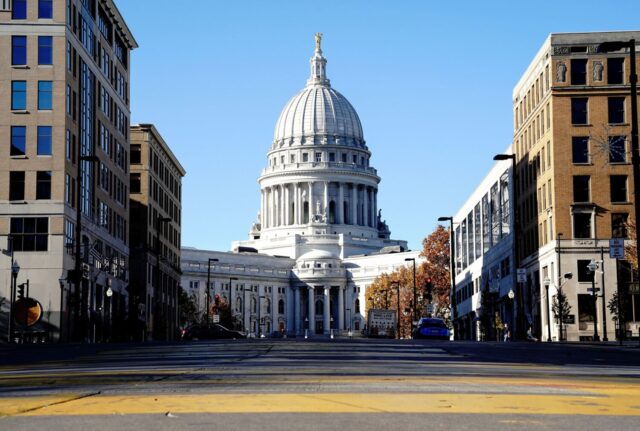The Wisconsin State Senate has unanimously approved a bill to require schools to teach the history of Asian American people.
“This is a historic moment for Wisconsin made possible by multi-ethnic, multigenerational and multiracial coalition-building across the state,” State Rep. Francesca Hong, a lead sponsor of the proposal, said in a message to Madison365. “Asian American history is American history. For Asian American students to see themselves reflected in their textbooks will enrich the classroom culture for all students inspiring them to share their stories and feel seen.”
“It’s just a historic vote,” Kabby Hong, an English teacher at Verona Area High School and the 2022 Wisconsin Teacher of the Year, said in an interview Wednesday. He is not related to Francesca Hong.
Current law requires the teaching of Black American, Latino American and Native American history. The bill approved Tuesday, which awaits the signature of Governor Tony Evers, adds Asian Americans and Hmong Americans to the list.
“By requiring schools to incorporate the rich tapestry of Asian American and Hmong American narratives into their instructional programs, Wisconsin demonstrates a commitment to providing all our students with a comprehensive understanding of the nation’s diverse heritage,” AAPI Coalition of Wisconsin Education Committee chair Lorna Young said in a statement.
Kabby Hong said the addition of Asian American history to the curriculum was first proposed in 2005 and took nearly 20 years to pass because “it’s a blind spot being passed down generationally.”
“We’re so considered perpetual foreigners, that we’re not even considered in the discussion when it comes to identities worth talking about,” he said.
Kabby Hong said a focus on Hmong American history is especially important in Wisconsin, which has the third-highest Hmong population in the US.
“The Hmong American community, and their contributions and their sacrifices for this country, have really gone unnoticed for way too long,” he said.
Hong said an increase in anti-Asian hate crimes during the COVID-19 pandemic was partly responsible for legislators finally seeing the need to require Asian American history. He also credited Asian-American youth.
“There’s a growing activism amongst young Asian Americans who are just not patient at waiting for things that I think make common sense,” he said. “And I think this growing activism, especially amongst our young Hmong American population, is really the reason why this legislation has really made the impact that it has, and the reason why we’re able to convince politicians from both parties to move ahead with it.”
Hong said the next step will be implementing the requirements, which will take some work on the part of school districts and teachers.
“It’s going to take training, it’s going to take resources,” he said. It’s going to take teachers exploring their own blind spots and lenses in terms of how they view curriculum.
It’s going to take some curiosity, it’s going to take some humility.”
Evers is expected to sign the legislation. His office did not respond to a message inquiring about when he might do so.




























